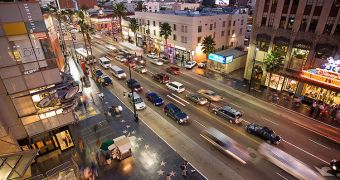Scientists at the University of Gothenburg, in Sweden, have just recently finished conducting a new set of investigations about what it is precisely that makes us fear our cities, but only in certain times and places. What the research has essentially focused on is the correlation that forms between the buildings and streets of a city – its physical environment – and the social environment of people living within. The latter also includes people's perception of how the city is shared with others, AlphaGalileo reports.
One of the most counterintuitive conclusions of the new investigation has been the fact that some teenagers feel more insecure walking city blocks than others. Generally, there is a widely held view that young people go about the town without a worry, and this always gives their parents a good scare. But this study has discovered that youngsters who experienced threats and physical violence on the city streets are more likely to feel more insecure in public places than grown-ups. The goal of the research, of capturing the essence of how people perceive threats in the urban environment, therefore brings new meanings.
The experts, who were all based at the university's Faculty of Social Sciences, and were led by scientist Gabriella Sandstig, were also interested in explaining instances such as why people were scared of a desolate parking lot at night, when, during the day, it was a harmless place. One of the main culprits for these panic accesses, the team learned, was the feeling of being alone. Apparently, having no one around on the street with you can cause the weird feeling that you are being watched, or that someone is out to get you. The work has also found that, while people feel most secure when roaming the city with their friends, they also feel somewhat secure on a busy street, filled with strangers.
“We need to populate public spaces and make it evident that nobody is alone and that somebody cares about our public environment. It may be more effective to invest in more street lights – and make sure they are in working condition – than to pay for crime prevention measures,” Sandstig says. By creating something like a sense of community and togetherness, the team believes, people can make their own towns feel more secure, even in circumstances where otherwise a dark street would be the last place you'd want to find yourself in alone.

 14 DAY TRIAL //
14 DAY TRIAL //